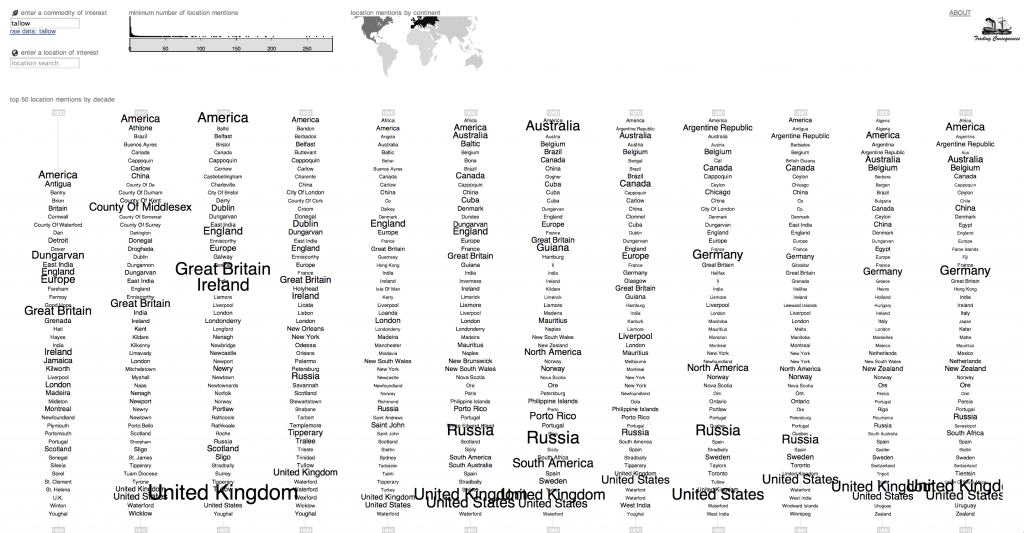News & Events
Research Team Launches Trading Consequences
 An international team of researchers that includes Jim Clifford, an assistant professor in the Department of History, launched Trading Consequences on Mar. 21, 2014.
An international team of researchers that includes Jim Clifford, an assistant professor in the Department of History, launched Trading Consequences on Mar. 21, 2014.
Trading Consequences is a collaborative effort that brought together a team of historians, linguists and computer scientists from the U of S, York University, the University of Edinburgh and St. Andrews University, to examine the environmental and economic consequences of commodity trading in the British Empire, particularly Canada.
Over the last two years, the team has been using text mining, traditional and innovative historical research methods, and visualization techniques, to turn digitized nineteenth century papers and trading records into a unique database of commodities, and engaging visualization and search interfaces to explore that data. The launch makes their database, searches, visualization tools and methodology available as an open resource for exploration by other historians.
As an environmental historian with a focus Britain and the British World during the 19th century, Clifford’s research interests are a perfect fit for this project. Now that the database has been launched Clifford will continue his research, using it to explore the reliance of East London industries on raw materials from around the world and share his findings via the Trading Consequences blog.
For more information on Trading Consequences, click here.
Pictured below: The Location Cloud Visualization Showing the Changing Geography of the Tallow Trade During the 19th Century
